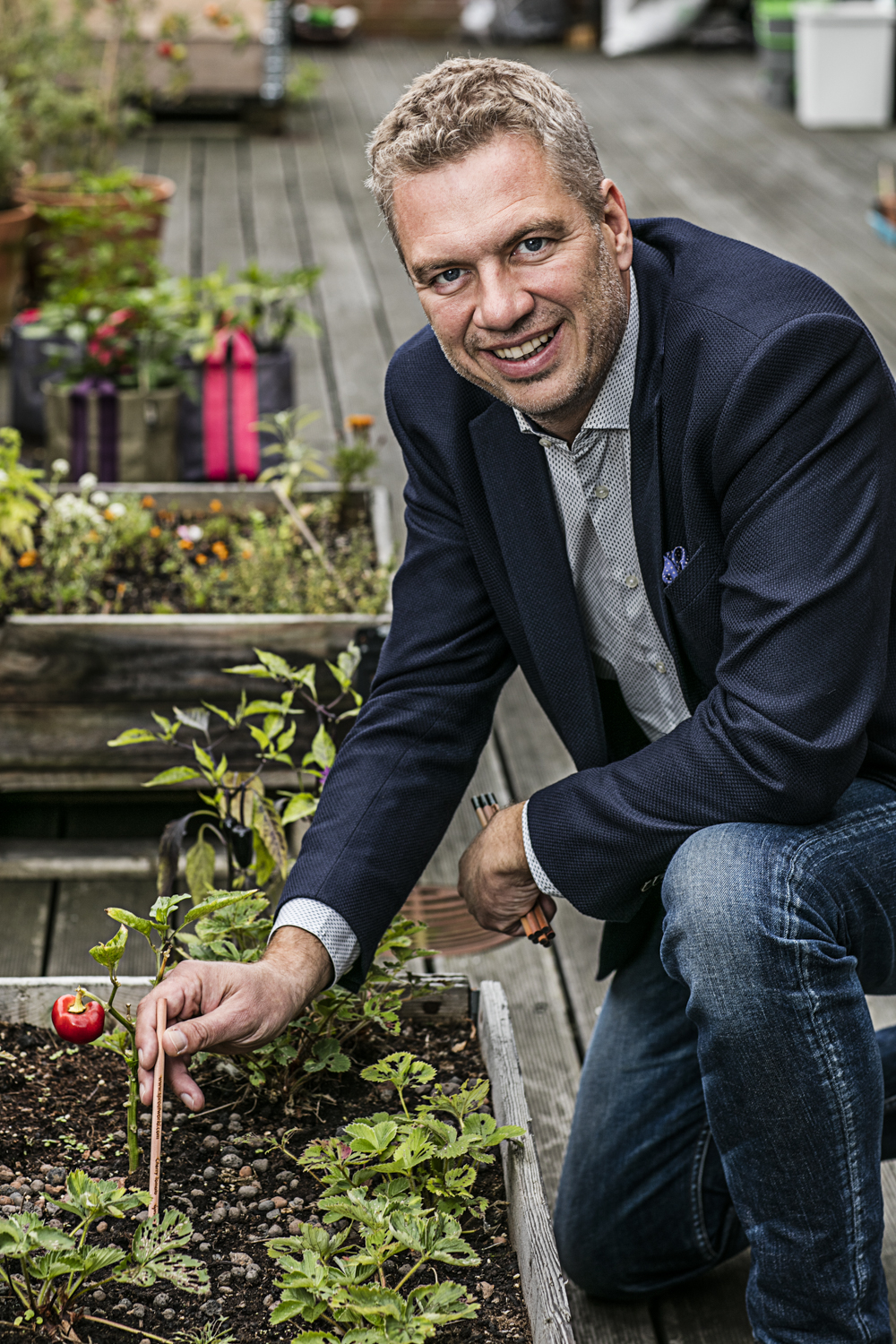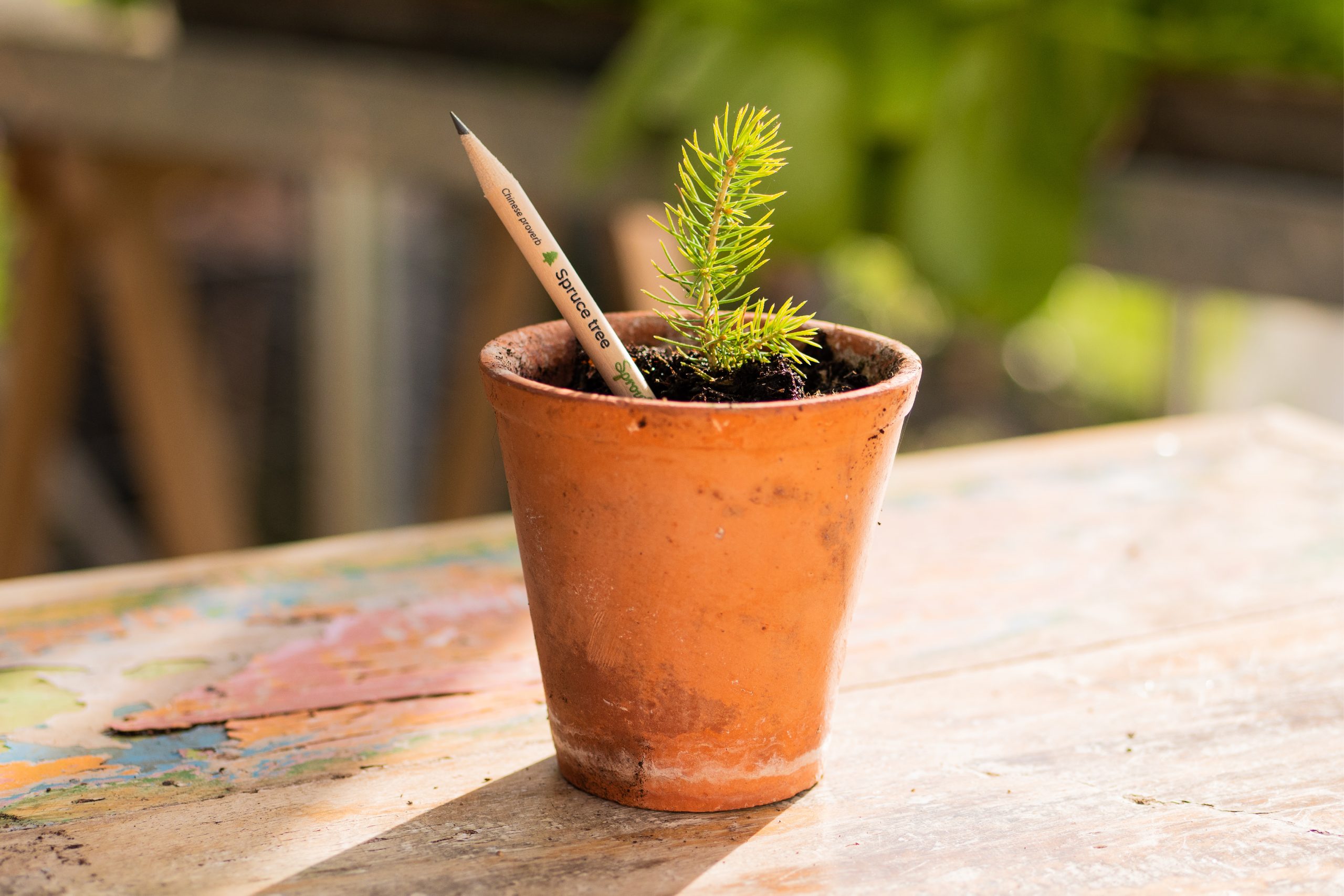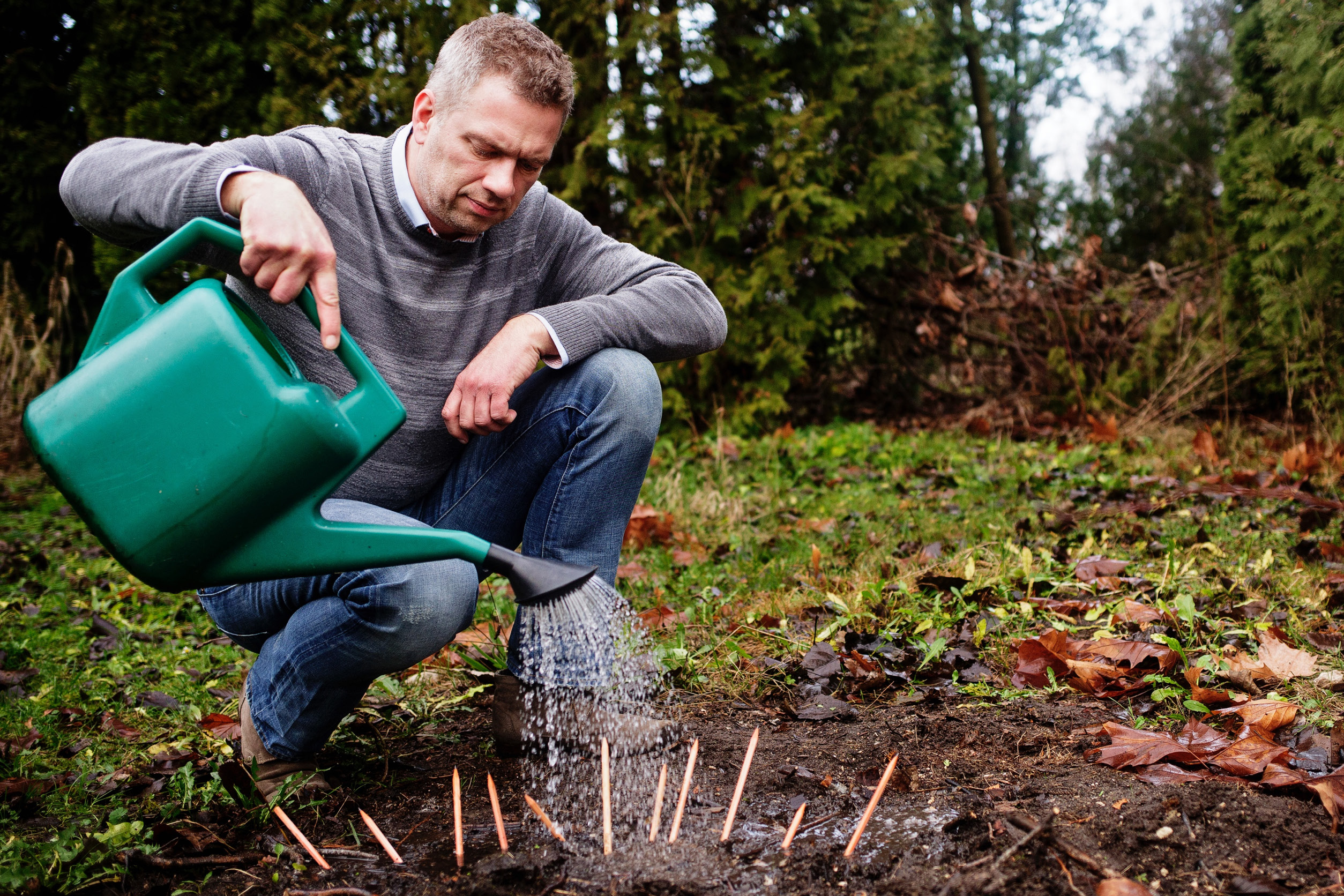“We get a lot of complaints from customers that the product isn’t working, and it always turns out to be a copied product. It’s not so much the monetary damages but the reputational damage that counterfeiting does to the brand.”

Michael Stausholm
It has likely been a while since most of even used a pencil – but would we use them more if they grew flowers, trees and herbs? Enter, Sprout World, a company founded on the concept of sustainability that credits patents as playing a large part in its success. In late 2012, Michael Stausholm, the company’s founder, happened upon a Kickstarter campaign launched by three MIT students for a pencil one could use and then plant in the ground to grow flowers, herbs, vegetables and even trees. “I saw it and thought it was a wonderful idea,” Stausholm says. “I had been working in sustainability for many years and everyone was talking about it, but what was it actually? The pencil was a wonderful way of illustrating the concept.”
Luckily, the students had taken out a provisional patent, and once Stausholm had acquired the global IP rights, he applied for the patents in Europe, the United States, Canada, Australia, China and several other markets in Asia. The last of these (the Chinese patent) was granted in March 2020. Sprout also has a globally registered trademark, including in smaller markets such as India and Vietnam, for goods such as stationary, kitchen utensils and makeup. This is because, in addition to the pencil, Sprout sells a plantable spoon, and is coming out with a plantable makeup pencil next year. So far, the company has sold 30 million pencils, both to companies and direct to consumers.
Of course, like any IP owner, Stausholm has had a crash course in infringement, fakes and enforcement. While platforms like Amazon and Alibaba have helped to grow the company, they have also contributed to widespread counterfeiting, which not only comes with financial loss, but reputational harm. IPWatchdog spoke with Stausholm about his experience trying to protect a growing brand in a world where fakes are proliferating, and most countries’ legal regimes have yet to catch up with the problem.
Did you have any experience acquiring or enforcing IP before you started Sprout?
I had absolutely no experience in IP or patents when I founded Sprout. My background is in shipping and I spent 15 years in Asia in production and sales. But we hired some very good U.S. patent lawyers from the beginning, and trademark lawyers as well. It took a very long time, especially for the Chinese patent, which took almost eight years in total. Australia was first and the U.S. patent was granted in 2016 or 2017.
We started selling the pencils in 2013, and by 2015 we began to see copies, especially from China; it’s a big problem. It’s global, but it’s especially coming out of China, India and Turkey. To curb the copies, we initially had our lawyers contacting the fake sellers, but we soon realized that was too expensive, so we started to do it in-house ourselves. Nineteen out of 20 sellers would remove them, but there were still always some that persisted and we would have to pass those on to the lawyers.
How much do you think counterfeits cost the business?
It’s very difficult to estimate loss of sales on such copies. The good thing about the United States is that you have a very strong system for taking legal action against counterfeiters. You can demand that they submit their accounting books and seek damages from their profits, which is great, but in Europe you don’t have that option. You need to prove that you have lost business and lost money in order to get damages, and that’s almost impossible. So, I can’t estimate how much it’s cost but that’s not even the worst part. The worst is that the counterfeits confuse consumers. We get a lot of complaints from customers that the product isn’t working, and it always turns out to be a copied product. It’s not so much the monetary damages but the reputational damage that counterfeiting does to the brand.
What role did Amazon play in contributing to or curbing counterfeits?
 We started selling on Amazon in 2013 and we were on for a few years and it was ok, but then we encountered a lot of counterfeits and Amazon didn’t do anything about it. So, we took the products off and we re-launched in 2018 back on Amazon. They are still very difficult to work with on counterfeits, but they’ve become much better and quicker because of the Brand Registry, so now—especially in Europe—they are very quick to remove counterfeits. In the United States, however, they’re still slow, to say the least, in reacting. There’s a big difference between Amazon in Europe and the United States. Amazon is extremely powerful in the United States.
We started selling on Amazon in 2013 and we were on for a few years and it was ok, but then we encountered a lot of counterfeits and Amazon didn’t do anything about it. So, we took the products off and we re-launched in 2018 back on Amazon. They are still very difficult to work with on counterfeits, but they’ve become much better and quicker because of the Brand Registry, so now—especially in Europe—they are very quick to remove counterfeits. In the United States, however, they’re still slow, to say the least, in reacting. There’s a big difference between Amazon in Europe and the United States. Amazon is extremely powerful in the United States.
How has the pandemic affected the counterfeit problem and business in general?
Initially, during the spring, when COVID-19 first popped up, we saw a tremendous increase in copies. It’s relatively easy to put up images of products on Alibaba and other platforms without even having the products and that’s what we were seeing. But in the last 2-4 months we’ve seen a reduction. I think it’s simply because, like everyone else, a lot of these fake sellers have been hurt by the pandemic and they’re out of business.
We were hurt during the first three months because we were so dependent on Amazon and they stopped taking stock into their warehouses, but then during late spring and summer we saw a spike in online sales both on our own website and Amazon. Generally, counterfeiting has increased a lot because more people are going online who are not sophisticated online consumers and they are less suspicious of products.
You’ve used artificial intelligence technology to detect fake sellers – how does that work?
We started using Red Points about a year ago. What they do is manage all the platforms – Alibaba, Amazon, Google, Etsy – and whenever they encounter a copied product or a trademark or copyright infringement, they will directly contact both the seller and the platform. Very often, they manage to remove the counterfeits right away, and that has helped us tremendously. Not only do we no longer need an in-house person doing it, but they also catch many more products than we ever could. They search 24-7 for fakes.
They use keywords and image recognition software to find the fakes, and then whenever the system encounters something we have to manually confirm whether it’s an infringement or not. The system will also catch our official distributors or our own products, so we do have to manually review the results.
What steps do you think need to be taken to help businesses like yours with the counterfeit problem?
The first step is accountability of the platforms. Amazon, Alibaba and others must be held accountable to take swifter action. They are of course interested in having as many listings as possible, because that’s how they make money—if there are hundreds of fake sellers and one original, they make more money. The counterfeit sellers in our case often sell pencils with invasive seeds or that don’t grow. No, it’s not going to kill people, but you also have fake medicines, spare parts, and Apple products that suddenly burst into flames. It’s a serious issue that it does cost people their lives, so there must be accountability on the part of the platforms to clean their own house.
What advice would you give other startups like yours with respect to the role of IP in your success?
I think a lot of startups are reluctant to take out patents and trademarks because it costs a lot of money up front, but the point is that it will cost more money in the long run not to. Sprout is a good example—if we didn’t have the patent, we would never have Bank of America, Disney, Coca Cola or IKEA, because they would be able to buy a cheap copy from China at half the cost. We have all of these customers because we have the patents, and IP is important to those companies. So, it’s not a question of whether you can afford to take out IP, it’s a question of whether you can afford not to.


![[IPWatchdog Logo]](https://ipwatchdog.com/wp-content/themes/IPWatchdog%20-%202023/assets/images/temp/logo-small@2x.png)

![[[Advertisement]]](https://ipwatchdog.com/wp-content/uploads/2023/01/2021-Patent-Practice-on-Demand-1.png)
![[Advertisement]](https://ipwatchdog.com/wp-content/uploads/2024/04/Patent-Litigation-Masters-2024-sidebar-early-bird-ends-Apr-21-last-chance-700x500-1.jpg)

![[Advertisement]](https://ipwatchdog.com/wp-content/uploads/2021/12/WEBINAR-336-x-280-px.png)
![[Advertisement]](https://ipwatchdog.com/wp-content/uploads/2021/12/2021-Patent-Practice-on-Demand-recorded-Feb-2021-336-x-280.jpg)
![[Advertisement]](https://ipwatchdog.com/wp-content/uploads/2021/12/Ad-4-The-Invent-Patent-System™.png)







Join the Discussion
One comment so far.
Larry J Martinez
December 12, 2020 01:34 pmPlantable desposable every day items, like boxes and containers would be an awesome way to curb the trash build up. Things that are used by everyone. Turned into trees and plants. That’s a sustainability dream